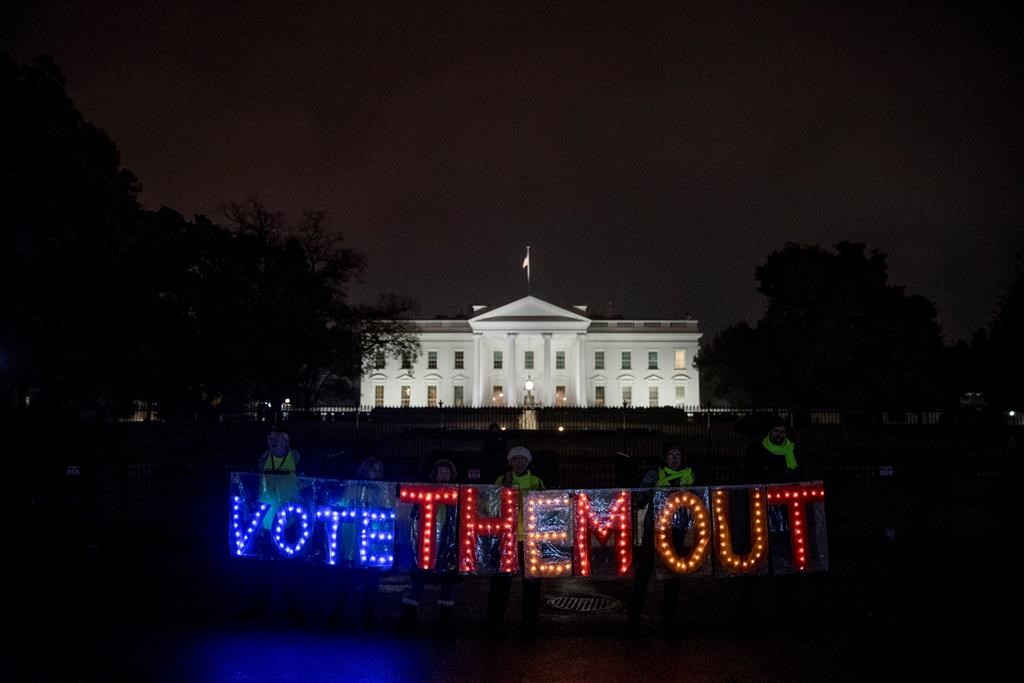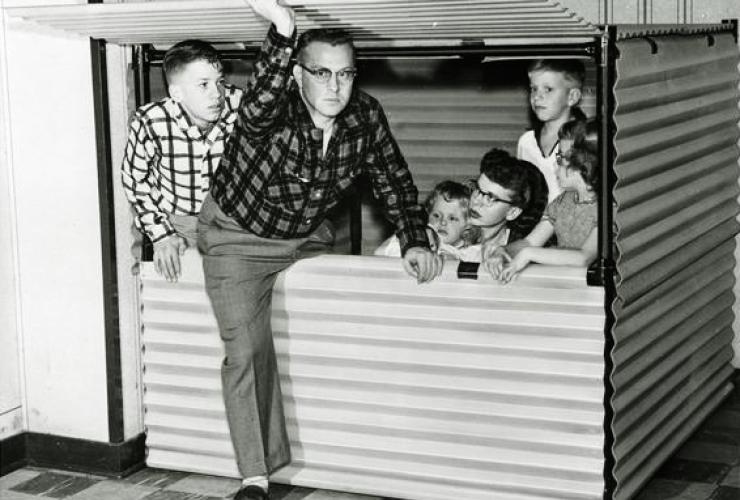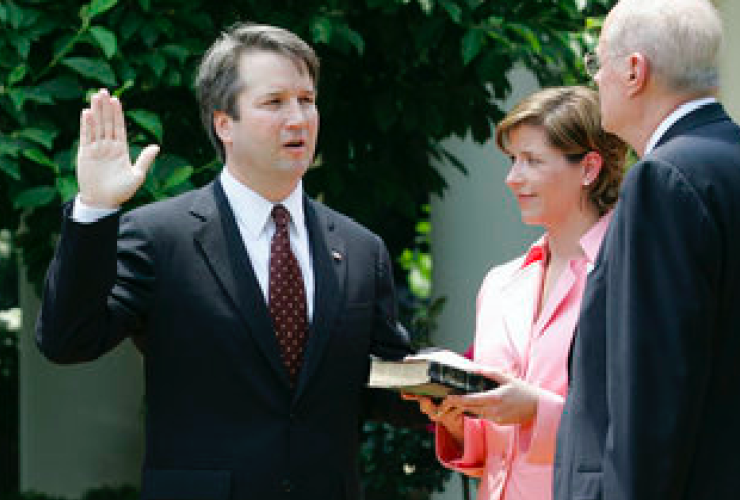No one knows yet if it will be red, blue or purple, but a tidal wave of energized voters is expected to flood polling stations across the United States today as Americans deliver their early verdict on President Donald Trump.
Unlike past midterm votes and their middling level of interest, the 2018 edition has generated robust early voting turnout — in Arizona, Nevada, Texas and Utah, the number of advance ballots already exceeds the total cast in 2014.
And while Trump's name is not on the ballot, it seems to be on everyone's mind — including his own.
In a conference call organized by his campaign, he told supporters Monday to vote as if he was on the ticket, calling the election a referendum on his presidency and his movement.
During a barnstorm flurry of rallies in Ohio, Missouri and Indiana, he continued to whip up anti-immigration sentiment among his supporters, warning that Democrats would usher in an era of open borders and widespread crime.
And he also conjured up a new fear: illegal voting, warning that any such perpetrators would be prosecuted to the fullest extent of the law.
"In a certain way, I am on the ballot," Trump said during Monday's conference call, urging supporters to get out to vote. "The press is very much considering it a referendum on me and us as a movement."
Even veteran observers of U.S. campaigns find it all a little bewildering.
"Things are pretty good, yet we have all this division and we have this president who's relatively unpopular, so we have this strange juxtaposition," said Kent State politics professor Michael Ensley, citing Trump's poor approval ratings despite a rollicking U.S. economy and the absence of any major foreign-policy challenges.
Presidential tides are supposed to wax and wane with traditional economic indicators such as job creation, wage rates, unemployment and consumer confidence — all of which are going gangbusters, according to numbers released last week. Yet for Trump, talking about the economy just isn't very exciting, he admitted on the weekend.
"The broad question I keep asking myself is, are we at a point of a fundamental change in the American party system?" Ensley said. "I'm torn on the answer to that question."
Democrats, sensing an opportunity to regain control of the House of Representatives, have been aggressively beating the health-care drum, promising to defend health coverage for pre-existing conditions from what they predict will be a renewed Republican assault on the Affordable Care Act.
But where the Republicans should be singing the praises of an economy firing on all cylinders, Trump has been hewing closely to his 2016 playbook, relentlessly rallying his red-hatted supporters with a war footing against a South American migrant caravan slowly making its way through Mexico.
"Democrats are inviting caravan after caravan of illegal aliens to flood into our country and overwhelm your communities," he told a Make America Great Again rally Monday in the swing state of Ohio.
Before he left Washington, the president appeared to hedge his bets against a Democratic breakthrough, tweeting an ominous warning to anyone engaged in what he called "illegal voting" that they would be subject to the "maximum criminal penalties" the law allows.
"There are a lot of people, a lot of people — my opinion, and based on proof — that try and get in illegally and actually vote illegally," Trump said before boarding Air Force One.
"So we just want to let them know that there will be prosecutions at the highest level."
Trump has been on a campaign tear in recent days, visiting friendly states for 11 rallies over six days in an effort to shore up support in Senate races. Some observers have taken that as a sign that he's largely written off any hope of retaining the House.
And on Monday in Indiana, he deployed three of his most prominent female supporters — press secretary Sarah Huckabee Sanders, adviser Kellyanne Conway and daughter Ivanka Trump — to help garner support among women, who are expected to turn out in droves on Tuesday.





Comments